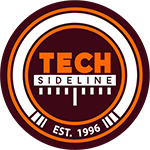Bringing in money doesn't make it for-profit nor justify paying players.
UNICEF's U.S. Fund, which accounts for only part of the operating entity, brings in $586 million per year. The WHO has an annual operating budget of $4.3 billion. The Salvation Army, which has, well, armies of unpaid workers, brings in about $170 million each year. I don't hear anyone saying they are "businesses" nor that they are "for profit" (which would be factually incorrect).
Bringing in a lot of money in no way makes an organization a business nor does it provide even the slightest justification to pay someone. If someone is legally and officially an employee, that person must at least be paid minimum wage by law. Even if someone is an employee, and student athletes are not, the amount of money that is brought in has no bearing legally, morally, or ethically and how much they get paid. The only obligation is to pay what the two parties both voluntarily agreed to. If a person is truly "worth" more money, they should have the leverage to demand it. College football players have no one else who is willing to pay them to play. They have no other options. That means they have no leverage and no basis for demanding more money.
No college football player is an employee. The reason this is the case is because none of them entered into employment agreements. Had they entered into employment agreements, they would be employees. It's really that simple. If an organization brings in money as a result of someone's efforts on their behalf does not, by default, mean they are employed. Again, the Salvation Army would have quite a problem on its hands if this were the case. (Besides that, it's not at all clear that the university earns more in remuneration from each individual athlete than it provides).
All college football players are engaged in a voluntary non-employment arrangement with the schools. They all knew the terms of their arrangements and they all had the choice to either accept or decline them. The fact that no other routes exist to play football is immaterial and not a problem the universities should feel any obligation to solve. The fact that the doors to the NFL are not open to college football players is not nor should it be a concern of college athletic programs. No college or college system bears the responsibility of serving as a bridge to the NFL. If athletes don't like that they can't go straight from high school to the pros, take it up with the NFL. That is a choice the NFL makes.
I do agree, however, that their separate treatment is a problem. But I'm strongly in favor of going the opposite direction. Take away the special housing units, special dining halls, and special academic services. I believe that moving away from further professionalism would not hurt the bottom line very much. The connection that the paying fans and alum have is to the school, not the players. The players come and go. If you let all of the current D1 players go to some minor league program and replaced them with lesser players, I believe the same number of fans would show up because they love their school and can't stand their rivals. If college football fans were there to see the highest caliber of play, they'd just watch the NFL on Sundays. I for one would show up to see us play UVA or West Virginia if our respective teams were fielded from the general student body. Heck, I think I'd be even more interested then.
[Post edited by pienkows at 08/02/2018 6:36PM]
(In response to this post by Hubman)
Posted: 08/02/2018 at 6:33PM
+3
Insert a Link
Enter the title of the link here:
Enter the full web address of the link here -- include the "http://" part:
Enter the full web address of the link here -- include the "http://" part:

|
Current Thread:
|

















